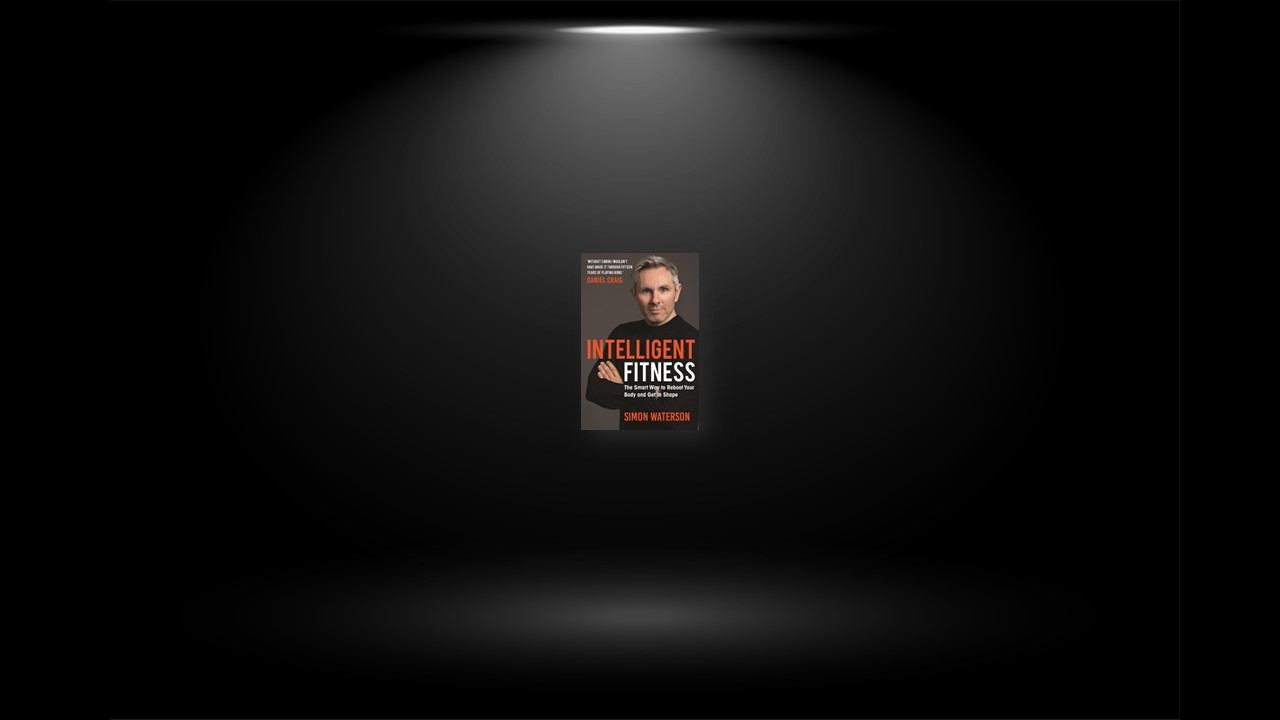Think Big, But Set Small Goals
Ambition is important, but you need to know how to set your own achievable goals to ensure you’re more likely to reach them, and possibly even exceed them. You can think big, but at the same time create a sustainable programme that enables you to attain your long-term objectives by taking small steps. The progression and sense of accomplishment you’ll feel from hitting your mini targets is a great motivator and will carry you forward to potentially reach unprecedented levels of fitness and wellbeing.
Get Out of Your Comfort Zone
We all have to do things that we don’t enjoy. That’s certainly true of actors. Daniel doesn’t love running but, unfortunately for him, Bond is always running and it can’t be avoided. At the beginning of every Bond movie, 007 is either pursuing someone or he’s being chased himself, whether sprinting up and down flights of stairs, through the streets and across rooftops, or bursting through windows and smashing down doors. Daniel had to be capable of doing that time and time again, take after take. Running and changing direction was always an important element of our programme, even if it wasn’t our favourite activity.
You probably don’t have to work on the things you love because you’re good at them already. That’s the reason why you like them so much. But you should work on the things that are new to you and that are more challenging. In time, you might even find that you start to embrace an activity that you previously didn’t enjoy. Sprinkle some of what you don’t love into your fitness programme, as well as some of what you do. That’s how you keep yourself stimulated.
Train Like a Child
Ride your bike like you’re being chased. Kick a football around. Go for a swim. Play cricket. Embark on a hike. Sprint when you can. Feel your body moving, your heart pumping, your blood coursing through your veins; you’re feeling truly alive, maybe for the first time in a while.
As adults, we don’t use our internal feelings much to stimulate us. We use external stimulants – caffeine, alcohol and sugar – to feel euphoric and chase energy instead. But it’s not too hard to remember those feelings you had as a child, when you had so much natural energy and your mental wellbeing was amazing. Training like a child is about trying to recapture the time when you had no stresses and you felt free. You’ll most likely be outdoors, too, which will further enhance the experience. You’ll be working hard but you’ll be less conscious of it because you’ll be enjoying yourself, and that helps to reduce the mental fatigue that often comes with exercise.
If you’re new to working out and you start with rigid, structured sessions, that can be difficult to maintain. Staying physically and mentally flexible gives you the opportunity to adjust your sessions to suit your mood that day. That’s because as a child you do everything more spontaneously, and you only do as much as you want until it’s no longer fun. As well as boosting your wellbeing, training like a child allows you do to things more naturally and unconsciously in the beginning, and as you progress you will be able to easily transition into more organized workouts.
Don’t Be Too Hard On Yourself
The pressures of social media put even more of our focus on the aesthetic, and it’s important not to get wrapped up in this often unrealistic portrayal of what it means to be fit and healthy. These accounts are often full of people who care more about their external appearance than anything else, and will do whatever it takes to reach what they see as perfection; pills, potions and filters are not the way to performance, or a recipe for good mental health. If you’re compromising your mental health in the pursuit of extreme or quick-fix solutions, that’s going to eventually catch up with you.
Allow your brain and body to help and complement each other; if you feel good in your head, then you’ll pay more attention to your body, and when you feel good in your body, you’ll be so much happier. When you’re in a positive place mentally, you’re very aware that you can actively push yourself to get results. And then when you think you’ve achieved those physical results, the boost gives you that sense of euphoria. If you get it right, it can be a virtuous circle, with the brain and the body being catalysts for each other. They’re feeding off each other’s positivity.
Rely On Yourself, Not Machines
Work with what you’ve got and what’s always with you – your own body. Using your bodyweight and natural movement, you can create the intensity that you need, whether you’re indoors or outdoors, at home or in the gym, at the park or on the track. You should have the self-confidence to train anywhere. From pull-ups, dips and lunges to squats and push-ups, you can utilize your bodyweight within a workout. When you’ve got access to more comprehensive bits of kit, fine, but know that when you don’t have those machines, you can revert to your bodyweight exercises and still train effectively.
Instead of being reliant on machines, gizmos and gadgets, be reliant on yourself. All you need is your body and a workout theory or method that you can take anywhere with you. Invest in a theory and method before you invest in any kit or a gym membership.
Don’t Let Age Hold You Back
When you’re younger, your metrics tend to be based on how much you’re lifting, how fast you’re running and how much you weigh. As you age, you can change how you measure your progress slightly, so it becomes more about how you’re feeling and performing. When you’re older, it becomes even more important for you to enjoy your workouts, and that training is making you happy. Do what makes you feel good – that’s the most essential thing. With age, the balance changes. It used to be tipped towards being more athletic. But in your later years, it’s more about maintaining health and wellbeing, and having lots of energy and flexibility.
Recovery is Just as Important as Training
You wouldn’t skip a workout, so don’t skip a recovery session. Even though you may feel fine right now, you still need to recover properly – it’s an integral part of your programme. Ideally, you should never consciously feel as though you need to do something to recover. It should just be a natural part of your programme.
When preparing actors for films, recovery is always a prevention tool and you should take the same approach. There’s no point waiting to be sore before you start thinking about recovery: you should try to stop that soreness from happening in the first place. Prevention is key. If there’s an option to have some treatment or some time to stretch or meditate, you should take it, regardless of whether you think you need it or not. You’re not just looking at a short-term goal. This is to maintain your long-term objectives; it’s all about combating and reducing the risks of fatigue and injuries that will hopefully never happen.
Recovery is the best way to end the week and ensures you are at your optimum and ready for the next seven days. But it doesn’t have to be a Sunday – you can be flexible with when you do it. If you’re bouncing around and feeling full of energy on the day you had been planning to do your recovery session, you could do a full workout instead.
Equally, if you’re not 100 per cent ready for a workout session – perhaps your body’s not quite right physically or you have a bit of mental fatigue – then have the courage and conviction (without feeling any guilt) to switch to a recovery session. This is all about intelligent fitness. Everything should be flexible, and you should never be restricted by your programme if you’re not in the mood at a particular time. It’s very easy to shift your recovery sessions around, just as long as you do them. Make the most of the strengths of the day and how you’re feeling.
Become a Performance Sleeper
Everyone’s sleep requirements are different. Many people need eight hours of sleep a night, while some require six hours and others can get by with four. What matters is the quality of your sleep and how you feel when you get up in the morning.
Sometimes we sleep for a long time, but this might only be superficial sleep, and we haven’t entered into the deep sleep mode, the period when the body slows down with a lower heart rate and lower metabolism, allowing the brain to switch to sorting and storing the information from the previous day. That’s when you get quality sleep.
It’s much better to have four hours of deep sleep than to have eight hours of superficial sleep. It takes a while for you to get into that deep reparative state when everything is being rebooted ready for the next day. You won’t get the deep sleep that you need if, for example, you’ve been drinking alcohol, as alcohol is essentially a sedative and results in the suppression of REM sleep for a lot of the night. You’ll know if you’ve had enough deep sleep based on how you feel when you wake up. If you’ve only had superficial sleep, you’ll still be tired, but if you’ve had enough deep sleep, you’ll feel rejuvenated and ready for the day ahead.
Too much sleep is not good either, as that can have a detrimental effect on how you feel the next morning because it throws off your biological clock. If you wake up around the time you do most mornings and then decide that you’re going to go back to sleep again, it’s like starting and then quickly shutting down an engine. It’s better to have the optimum amount of sleep and then get up straight away rather than snoozing for too long.
Fuel Your Body
Never turn to deprivation to achieve an aesthetic. The body will go looking for energy from somewhere in order to fuel the performance that you want from it. It will start to go catabolic, using muscle tissue as energy, which means it’s reducing your hard-won gains. That’s why you won’t get the performance you want if you’re depriving yourself.
You certainly don’t want your body to enter a state of shutdown or shock. If the body feels as though it’s being deprived, it will always burn through muscle tissue ahead of fat. This is why putting the body in a comfort zone is much more beneficial when it comes to sustained fat-burning. Always work with your body and never against it. If you deprive yourself, you may look a little leaner but you could still have the same body-fat percentage because your muscle tissue has been reduced, and in the long run that will reduce your metabolism.
Instead of focusing on the things you’re going to cut from your diet, think about what you’ll change and what you may add, such as more natural foods rather than processed. Don’t be that person whom no one wants to invite to their home because they’ve become so difficult about what they will eat. Remember that everyone’s relationship with food is different; don’t imagine anyone else wants to follow the same nutrition plan you’re on. Always maintain flexibility.


